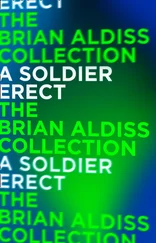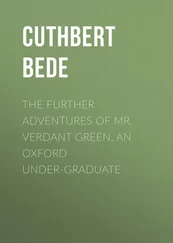That was the sinister beginning of it all, Papi. Twenty-four you were, when those two lousy pigs flushed you out at SaintCloud on April 10, while you were eating snails.
Oh, they went right ahead, all right! What drive, what zeal, what steadiness, what passion, what diabolical cunning it took to get you into the dock one day, and for the court to deliver that blow that knocked you out for fourteen years!
It wasn't so easy to turn you into the guilty man, Papi. But the inspector in charge of the job, Mayzaud, a Montmartre specialist, was so eager to send you down that it was open war between him and your lawyers even in the court, with insults, complaints and foul blows; and right beside Mayzaud was the plump little Goldstein, one of those phony bastards who lick the underworld's feet in the hope of being accepted.
Very amenable, this Goldstein! Mayzaud said he met him maybe a hundred times _by chance_ during the inquiry. This precious witness stated _on the very day of the killing_ that in a crowd of people he had heard someone named Roland had got three bullets in the guts, and he had then gone to the hospital to ask the exact identity of the victim. More than three weeks later, on April 18, after many contacts with Mayzaud, this same Goldstein changed his story: On the night of March 25-26, before the killing, he had met me with two unknown men. I had asked him where Lepetit was. Goldstein: "At the Clichy." As soon as I left him, Goldstein went to warn Lepetit. While he was talking to Lepetit one of Papillon's companions asked Lepetit to come outside. Goldstein himself went out a little later and saw Papillon and Lepetit talking quietly; but he did not linger. Later, coming back to the Place Pigalle, he once more met Papillon, who told him he had just shot Lepetit and asked him to go to the Lariboisière and see what state Lepetit was in, and to warn him to keep his mouth shut.
For of course, I, who was described to the Court as a terror, a member of the underworld all the more dangerous because of my intelligence and Cunning; of course I would hang around the Place Pigalle, right on the spot where I'd shot a guy, until Goldstein came that way again. Do I stand there like a signpost on some little Ardèche lane, so that the pigs only have to come strolling along to ask me how I'm doing?
This Goldstein was not such a fool as all that; the day after his statement he hightailed it to England.
Meanwhile I stood up for myself stoutly. "Goldstein? Don't know him. I may have seen him; may even have exchanged a few words with him, like you do with people always around the same district, without knowing who you're talking to." I really could not fit a mug to that name; so much so that it was only when we were brought face to face that I succeeded in identifying him. And I was so taken aback that a little square I didn't know should make such a detailed charge against me, that I wondered what crime he could have committed-nothing much for sure, he was such a dreary runt-for the pigs to have such a hold on him. I am still wondering; sexual offenses? Cocaine?
Without him, without his successive statements, which added new material to the pigs' case every time he opened his trap, without him nothing held together. Nothing.
And now there appeared something that at first sight looked miraculous but later turned out to be exceedingly dangerous- indeed fatal. A diabolical police plot, a horrible trap that I and my lawyers fell into headfirst. I thought it meant safety, but it was disaster. Because there was nothing solid in the file: Goldstein's successive bits of evidence were all very improbable. The file had so little body to it that my alleged killing lacked even a motive. Since I had no cause to dislike the victim, and since I was not raving mad, I was as out of place in this job as a hair in the soup; and any jury at all, even one made up of the dullest idiots on earth, could hardly fail to realize it.
So the police invented a motive; and the one who provided it was a pig who had been working Montmartre for the last ten years, Inspector Mazillier.
One of my lawyers, Maitre Eeffey, liked wandering about Montmartre in his free time; and he met this pig,.who told him he knew what had really happened bn the night of March 25-26, and that he was prepared to tell-implying that what he had to say would be in my favor. We said to ourselves, either he's motivated by professional honesty or else-which is more likely- there's some rivalry between Mayzaud and him.
And _we_ called him as a witness. _We_ did.
But what Mazillier had to say was not at all what we had expected. He stated that he knew me well and that I had done him many favors. Then he added, "Thanks to the information provided by Charrière I have been able to carry out several arrests. As for the circumstances in connection with the murder, _I know nothing about them_. But I have heard it said [Lord, how many "I have heard it said"s we had during my trial!] that Charrière was the object of ill will on the part of persons unknown to me who disapproved of his relations with the police."
And there was the reason for the murder! I'd killed Roland Lepetit during a quarrel because he was spreading it around Montmartre that I squealed, that I was an informer.
When was this statement of Inspector Mazillier's made? April 14. And when did Goldstein make his, the one that contradicted his statement on the day of the killing? April 18, _four days after Mazillier's_.
When the court of first instance was presented with this padded, elastic evidence, this mass of rumors, lies and prompted statements, they sensed there was something fishy about the whole thing. Because although you often put them all into the same bag, Papi, as if judges, pigs, jurymen, the law and the prison administration were all part of the same conspiracy you must admit that there have been some exceedingly honest judges.
As a result, the first court _refused_ to send me before the assizes with that phony file, and sent all the evidence back to the investigating magistrate, insisting upon _further inquiry_.
The pigs were utterly infuriated; they found witnesses everywhere-in prison, just about to be let out or just having been let out. But the further inquiry produced nothing, absolutely nothing, not the slightest clue or the least suggestion of new and serious evidence.
In the end, without anything fresh-still a bad bouillabaisse made with all the wrong fish-the file was at last allowed to be sent up to the assizes.
And now came the clap of thunder. Something happened that is almost never seen in the legal world: the public prosecutor, the man whose job it is to protect society by putting as many defendants as possible behind bars-the public prosecutor who had been given the brief to act against me, took it with the tips of his fingers, as though he were holding it with tongs, and put it back on the desk, saying, "I won't act in this case. It smells fishy and prefabricated: give it to someone else."
How splendid he looked, Maître Raymond Hubert, when he came to tell me this extraordinary news at the Conciergerie! "Can you imagine it, Charrière! Your file is so unconvincing, a prosecutor has refused to have anything to do with it and has asked for the brief to be given to someone else!"
… It was cool that night on the bench in the Boulevard de Clichy. I walked up and down under the shadow of the trees; I did not want to walk into the light for fear of interrupting the magic lantern as it projected these pictures from thirty-seven years ago. I turned up the collar of my overcoat, and pushed back my hat a little, to air my head. I Sat down again, pulled my coat over my legs, and then, with my back to the avenue, I slid my legs over the bench and sat the other way around, my arms leaning on the back as they had leant on the rail of the dock during my first trial in July, 1931.
Читать дальше
Конец ознакомительного отрывка
Купить книгу











